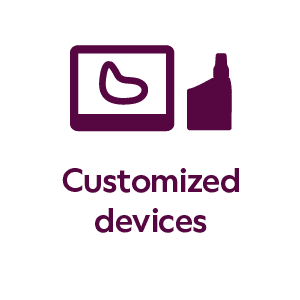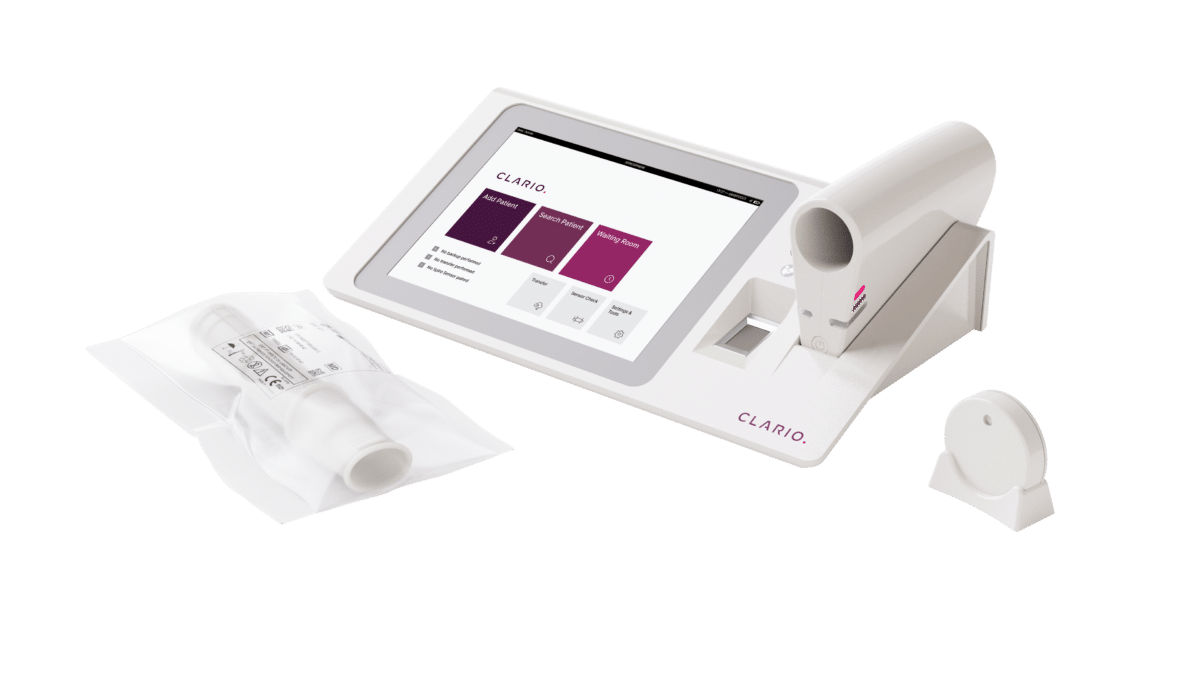Overview
Clario has been supporting respiratory clinical trials for more than 50 years, helping our customers achieve their goals at more than 80,000 sites worldwide.
Generating meaningful, valid, high-quality data in respiratory studies is notoriously difficult, but Clario leverages decades of experience and the latest tools and technologies to reduce data variability, identify outliers and produce exceptional data – study after study.










Clario SpiroSphere®
Flexible solutions for capturing respiratory endpoints
- Customized devices – Clario provides devices customized for clinical study workflows, enabling collection of full, high-resolution spirometry curves and other PFT metrics.
- Paper study support – Sponsors looking to use existing site equipment can leverage a paper-based approach and still benefit from Clario’s data management, overread and reporting services.
- Technician training – Clario empowers clinicians through expert training conducted either virtually, on site or at regional investigator meetings. All technicians must demonstrate repeatable proficiency acquiring a quality test that meets the ERS/ATS standards.

Industry-leading data management, analysis and insights
- Centralized data hub – Clario’s centralized EXPERT® platform ensures data uniformity, accessibility and security. Sites and sponsors can instantly upload pulmonary function test results and have real-time visibility to patient and site data, enabling timely trial decisions.
- Overread, analysis and reports – Our experts across the globe utilize an indication-specific overread strategy and can even provide one-hour express overread for immediate results while the patient is still on-site. Clario also offers advanced reporting tools to proactively identify trial compliance and performance issues.
- Site quality and patient eligibility – For half a century, Clario has collected proprietary data on the performance of 1000’s of sites. Combined with tools that simplify patient eligibility, Clario provides the insights necessary to minimize recruitment time and cost.

Complementary services to support all aspects of your respiratory trial
- eCOA solutions – Flexible support for mobile devices, browser-based applications, and customer or patient owned devices, all loaded with common respiratory questionnaires such as ACQ-7 and AQLQ
- Cardiac safety endpoints – Capture the ECG and blood pressure endpoints necessary in respiratory trials with Clario’s industry-leading services
- Pulmonary imaging – Comprehensive support for thoracic imaging modalities to align all pulmonary endpoints within a single supplier
- Additional endpoints – Pulse oximetry, 6MWT and actigraphy, sleep monitors, blood glucose monitors, inhaler medication adherence
Available solutions

Site-Based Spirometry (FEV1, FVC, PEF, etc.)
Centralized, on-site pulmonary function testing for clinical trials.

Home & Hybrid DCT Spirometry
Remote spirometry testing for respiratory clinical trials.

Cough and Lung Sounds
Assessment of cough frequency, cough severity and other lung sounds such as crackles or rhonchi for clinical trials.

Diffusing Capacity (DLCO)
Assessing the capacity of the lungs for effective gas transfer.
Why choose Clario for pulmonary studies and respiratory clinical trials?
Clario helps sponsors, sites, and patients with the best tools, training, and support needed to tackle a variety of respiratory measurements. Clario’s training and endpoint collection services combined with industry-leading centralized data management and analysis helps clients:
Obtain consistent, high-quality data
Identify and mitigate risks
Shorten timelines and reduce costs
Reduce variability and increase statistical power
Reduce site burden
Improve submissions and study outcomes
Whether a site is an established pulmonary facility looking to utilize its existing equipment or a remote oncology clinic with no prior experience in spirometry, Clario creates customized solutions to meet individual needs and helps clients achieve high quality data, exceeding current ATS/ERS guidelines.
Clario has helped sponsors collect test data for a wide array of indications
1,600+
respiratory studies supported
25M+
flow loops analyzed
90%+
recent respiratory drug approvals supported
700K+
respiratory trial participants served
Respiratory Science Team
Related resources
Medical imaging data standards, automation and analysis
The FIVC should be used as an acceptable substitute for the FVC when evaluating the FVC in neuromuscular disease; experience in a clinical trial for adult myotonic dystrophy
Relationships between same day FVC and FIVC from forced spirometry and IVC from DLCO; findings in an IPF clinical trial
Centralized DLCO services
Talk to a specialist
Our team of experts is available to address questions you may have about our integrated respiratory solutions. Submit your contact information and we’ll be in touch shortly.






